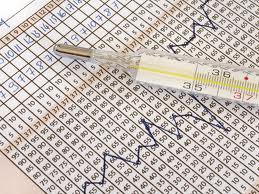Fertility
Issues?
Diet: We all know the benefits of a healthy
diet but it is imperative that both partners eat the right foods when trying to
become pregnant. Food  intolerances put stress on the body, leaving fewer
resources for conception. The most common foods linked to infertility are
gluten, wheat, alcohol, and caffeine, although there are others that may be the
culprit. Having a food intolerance test is a wise idea for anyone wishing to
become pregnant, especially those who are having difficulties. Generally, the
diet should consist of fresh, home-prepared meals containing a variety of
vegetable and fruits. Organic foods should be used where possible, since they
have a higher mineral content, and GMO’s and pesticides may be another unwanted
stress on the body.
intolerances put stress on the body, leaving fewer
resources for conception. The most common foods linked to infertility are
gluten, wheat, alcohol, and caffeine, although there are others that may be the
culprit. Having a food intolerance test is a wise idea for anyone wishing to
become pregnant, especially those who are having difficulties. Generally, the
diet should consist of fresh, home-prepared meals containing a variety of
vegetable and fruits. Organic foods should be used where possible, since they
have a higher mineral content, and GMO’s and pesticides may be another unwanted
stress on the body.
Weight issues- being overweight or underweight can also affect fertility as is the balance of exercise. Over-exercising plus anorexia can affect women’s menstrual cycles and changes of conception.
There is a wise saying that zinc puts lead in the pencil! It
is vital that vitamins and minerals are plentiful in both men and women when
working towards conception. Deficiencies
can cause a variety of problems in the body, infertility being one of them.
Taking a good quality multi-vitamin and multi-mineral is advisable. A vitamin
and mineral screening can help to establish if there are any deficits that need
an extra boosting. Some of the most important nutrients for a fertile system
are the B vitamins, selenium, iron and Vitamin E.
Environmental: There is much evidence to suggest a connection between heavy metal toxicity and subfertility. Lead and cadmium are particularly related to conception issues in addition to miscarriage, pre-maturity, and low birth weight. Other heavy metals such as mercury or aluminium may also be involved. Cigarette smoke (first hand and passive), unfiltered water, tinned tuna, and old paint are some of the instigators of heavy metal toxicity. Again, a screening through hair analysis or kinesiology is recommended so that the appropriate nutrition and lifestyle changes can be determined for detoxification.
The radiation from mobile phones has been linked to
low-sperm count and other infertility issues, especially in men. Remember to
keep mobiles away from trouser pockets and off when possible.
Sleep: Sleep studies have found that chronic insomnia can affect fertility especially in women.
Other factors that may result in subfertility are candida,
hormonal imbalances, infection, endometriosis, and ovarian cysts.
Treatments: Acupuncture and reflexology have gained recognition for assisting many couples to conception. These therapies work on the energy systems of the body to create harmony and allow the body to heal itself. Other energy therapies that have been praised by new mums and dads are BodyTalk and Reiki, which fight stress and bring the body back into balance, increasing the chances of conception, herbs, homeopathy, flower essences and Homeobotanical remedies. Natural medicine identifies the imbalances of each unique body, then repairs and nourishes the system, leaving it sturdy, balanced and ripe for conception.









